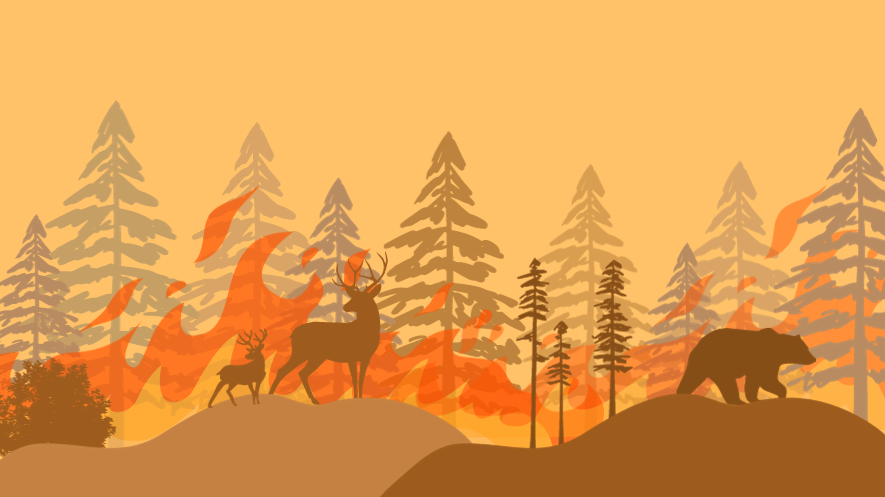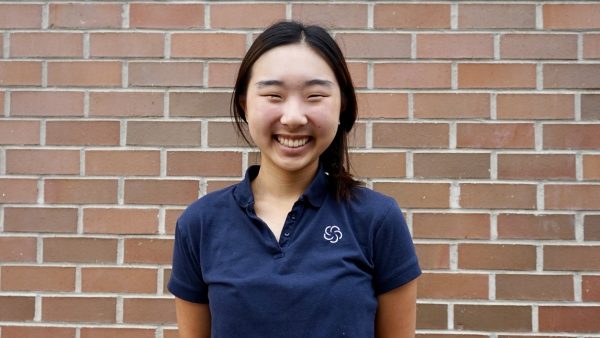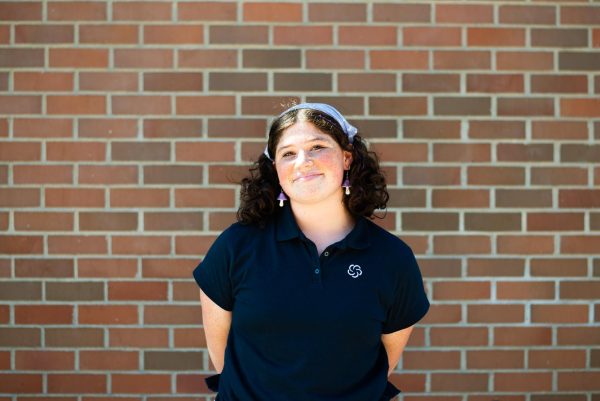Two weeks ago, Castilleja students and faculty were affected to various degrees from smoke, stemming from northern California forest fires.
“I walk to the train station every morning. I take the train back and I walk back home, so I’m outdoors a lot. Every day I’m outdoors,” Yamel Núñez-Castro, one of the new English teachers this year and an avid trail runner, said. “And [the smoke] hasn’t stopped me.” She, like many others, had to get to school (or work), had to get home.
However, others feel that smoke affected them more so, even in enclosed spaces: “I dance, and so I went to class which was in a building, which was enclosed, and you could feel it and you could taste it in there, in our classes,” Wendy Cruz, Director of Counseling, said.
On that Wednesday, Sept. 20th, the Air Quality Index (AQI) had reached 150, “which is [Castilleja’s] threshold to close doors and windows, turn air purifiers to the highest setting, and move all activities indoors,” as mentioned in interim Head of School Kathy Layendecker’s email.
Though Layendecker’s email implied that outdoor sports would be moved inside or canceled, some student-athletes said they still felt uncertainty about whether or not there would be a sports practice or game. For some Upper School students, there was also the added unpredictability about whether or not they would need to student coach that afternoon – which could, in turn, affect work time and commitment to clubs or extracurriculars.
“I think it was just the uncertainty that was just really hard,” said student coach and water polo player Riley Sterling ‘24. She said she received constant emails about updates on water polo practice and the middle school practices that she was student coaching. One minute, practice would be on, and the next, practice would be off.
The same applied to games, and many athletes like Sterling would need to mentally prepare throughout the entire day. Knowing that a game was canceled one minute, then finding out ten minutes later that it was back on, was simply just hard.
Athletes and teachers also had to make a choice based on their values – “I don’t want to be living in fear, I want to be able to move and I guess I kind of just have to make the best of it.” Núñez said. She said it was the choice between valuing physical health versus mental health.
“Getting some air, getting some exercise. I sleep better, I’m in a better mood, I, in general, feel better,” Núñez said. On one hand, these decisions can be challenging for student-athletes and teachers – particularly for those who are sensitive to smoke, especially on days with high AQI. On the other hand, there are others who don’t even get a choice. “I think it’s kind of frustrating because I know so many people, including my parents, that work outdoors; and so it’s like there isn’t a choice for them. If you’re, if you have to fix the roof of a house, you have to fix the roof, whether or not the air quality is great,” Núñez said. “How do we accept the world that we’re in when it’s toxic and also, how do we not get depressed by it?”
This is not the first time that the Castilleja community has been forced to stay indoors, or forced to take a pause. Students and teachers were inhibited from going outside, most prominently during the COVID-19 pandemic, but also during forest fires throughout the California forest fire season.
Not just seeing, but being outside can be important for some. “I think when you are indoors too long, it can feel really isolating,” Cruz said. “Fresh air and oxygen, I think it does really help. I think sometimes they bring you back into the present moment of where you are and what’s around you and the beauty that there is; and just like going out and distracting yourself feels good.”
When it comes to the combination of perfectionism and having 24/7 access to media from the outside world right at students’ fingertips – Cruz believes this combination contributes to many mental health issues at Castilleja – she believes that stepping outside, even just sitting outside for five or ten minutes, is crucial to Castilleja students’ (and faculty’s) mental health. “You’re taking yourself out of that environment in that moment that feels so tense where you have to be this perfect person. It’s going out and seeing all the beauty that is the imperfections of this world and how it still is this wonderful, beautiful place,” Cruz said.
In the here and now, the Castilleja community can appreciate the outdoors. Even so, there is still this constant reminder that the Castilleja community, everybody, inhabits this “toxic world.” There are these reminders everywhere – from the orange skies to smoke in the Arctic Circle, where Sterling backpacked over the summer.
“On our last couple of days, we saw the smoke…we were super remote, we hadn’t seen people in days and days, and we were still seeing the effects of climate change – which was another realization for us,” Sterling said. “We were just kind of sitting there, not near a single other human being, just looking at the sky and being like, ‘Wow, we know this is because of humans.’”




